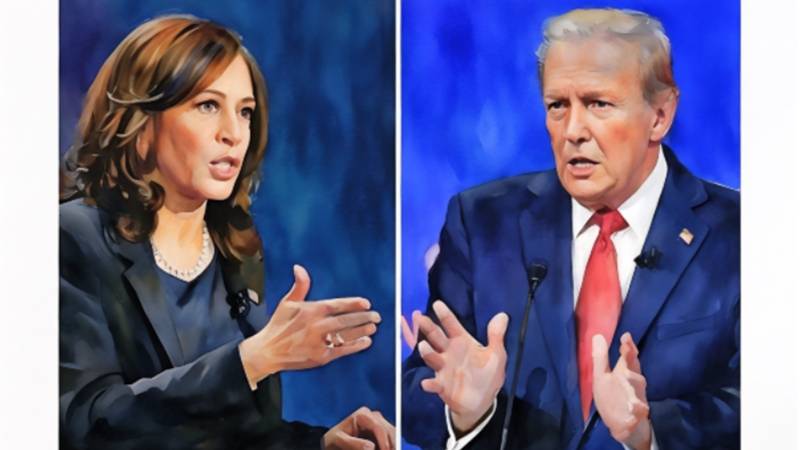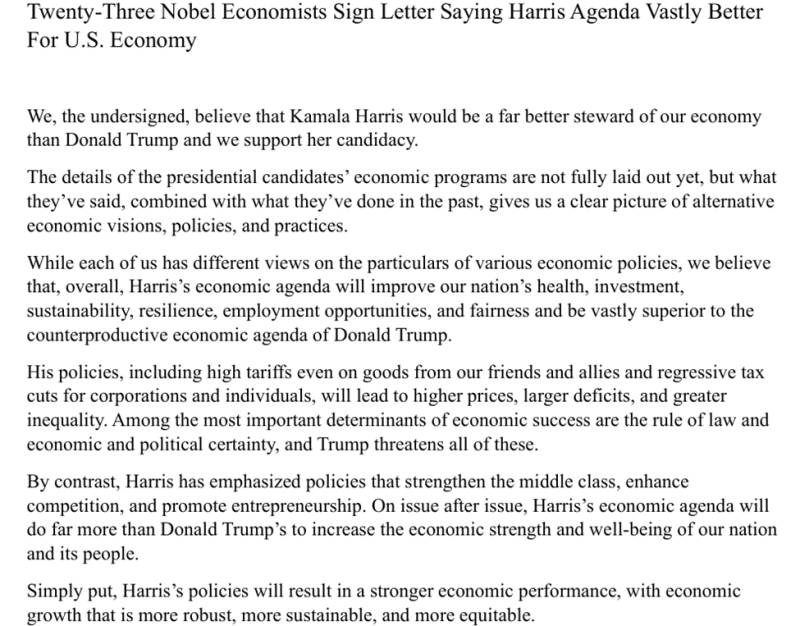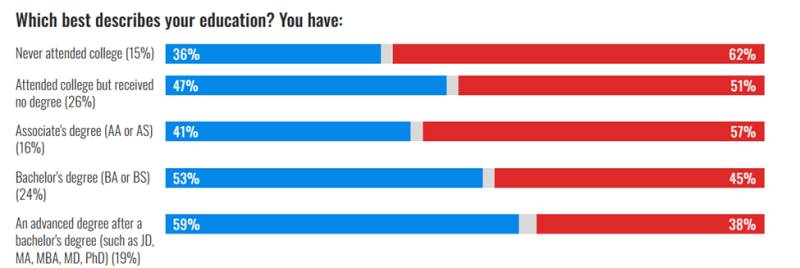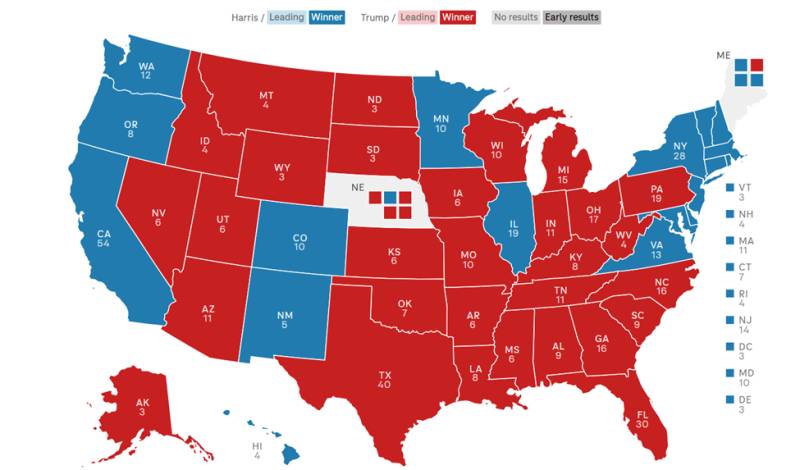
It is a question that still does not have a conclusive answer. The pre-election polls showed that Vice President Kamala Harris, the presidential candidate of the Democratic Party, was running neck-to-neck with her opponent Donald Trump, a former president and the presidential candidate of the Republican Party.
She had performed well in her debate with Trump, so well that he did not want to debate her again. Her economic program was lauded by 23 Nobel Laureates in Economics - who shredded Trump’s program.
Trump was big on grandstanding and making theatrical announcements. He accused without providing a shred of evidence that illegal immigrants in Springfield, Ohio were eating the pet dogs and cats of the citizens, a claim that was rebutted by the mayor of the town. He dressed up as a McDonald clerk at a drive through and as the driver of a garbage truck to show his affinity with the lower income segments of society.
Yet she lost the election, by 312 v 226 in the Electoral College, a uniquely US institution. She also lost the popular vote by 77 v 75 million. More than 155 million Americans voted in 2024, or nearly 64% of the eligible population. Trump did not score a landslide, getting just under 50% of the vote. And given that 36% of the eligible population did not vote, only a third of the eligible voters cast their votes for him.
Kamala lost in six states that Biden had won in 2020: Arizona, Georgia, Michigan, Nevada, Pennsylvania, and Wisconsin. All other states voted in 2024 as they had in 2020.

And it was not just that she lost the election. The Democratic Party lost control of both houses of Congress. It was a complete rout, a nightmare.
Some were quick to blame her loss on her gender and her race. Others blamed her for being too closely associated with President Biden, and for having had only a hundred days to campaign for the presidency without having had the benefit of going through a primary selection process.
Inflation, as expressed in the rising prices of necessities, especially groceries, emerged as the number one issue for voters who did not vote for Kamala
All those explanations contain a germ of truth. Would another candidate have fared better? It’s hard to say, given the strong anti-incumbency bias that is very evident around the globe.
A recent analysis by Politico offers new insights into what went wrong for Kamala. Based on focus groups, it finds that “even voters who previously backed Democrats cast the party as weak and overly focused on diversity and elites, according to research by the progressive group Navigator Research.”
While experts thought her speeches were thoughtful and eloquently delivered, a large segment of the voters found them to be scripted and written by someone else. Some described her as “inauthentic,” “very dishonest” and “did not seem competent.”
Another said: “It seemed like a lot of what she came out and said wasn’t really off-the-cuff, wasn’t coming from her. … Seemed like every interview, every time she came out and talked about something, it was planned out and never her thoughts, didn’t seem genuine to her thoughts, whereas, Trump, even though you never really knew what he was going to say, when he was going to say it, it was always him and genuine to what he thought, so that’s what swayed me.”
And then there was the transgender issue, which turned off many conservative voters. Perhaps for that reason, 56% of self-identified Christians, who constitute a majority of voters, voted for Trump. A woman from Georgia who didn’t vote in 2024 said that she didn’t agree with Harris’ “thinking that it’s okay for children to change their body parts.”
The Democratic Party was perceived as being insensitive to the needs of the working-class people and too focused on liberal theories put forward by the elite. A large percentage of non-college educated individuals voted for Trump while a large percentage of college-educated voters voted for Kamala. The higher the education level, the higher the percentage that voted for Kamala.

In one of those mysteries, many Hispanic citizens voted for Trump, oblivious to the threat posed by her opponent’s stated policies on illegal immigration, which may result in their parents, aunts and uncles being deported.
A man in Georgia who had voted Democrat in 2020 but Republican in 2024 said: “The elites that run the Democratic Party — I think they’re way too obsessed with appealing to these very far-left social progressivism that’s very popular on college campuses.”
Inflation, as expressed in the rising prices of necessities, especially groceries, emerged as the number one issue for voters who did not vote for Kamala. The fact that the economy in general, as measured by several economic indicators, was doing well did not register on them.
In Michigan, a key swing state, which has a large percentage of Arab Americans, the vote did not go in Kamala’s favour because she was viewed as being too close to Biden, who was seen as complicit in Israel’s unrelenting military assault in Gaza.
In Wisconsin, while voters were concerned that tariffs might raise prices in the short run, some thought Americans would be better off if “more stuff” was made in the US.

According to Brookings, while Kamala Harris only won in 13% of the roughly 3,000 counties in the US, they represent 60% of the GDP. The report stated: “Once again, a relatively small rural and small town economic order will wield inordinate authority over an economy anchored by big city metro areas.”
In a recent speech, Trump said that a “Golden Age is upon America.” Only time will tell how golden it will be and for whom. He is surrounded by billionaires, including Elon Musk, who donated nearly $300 million to his political campaign.

